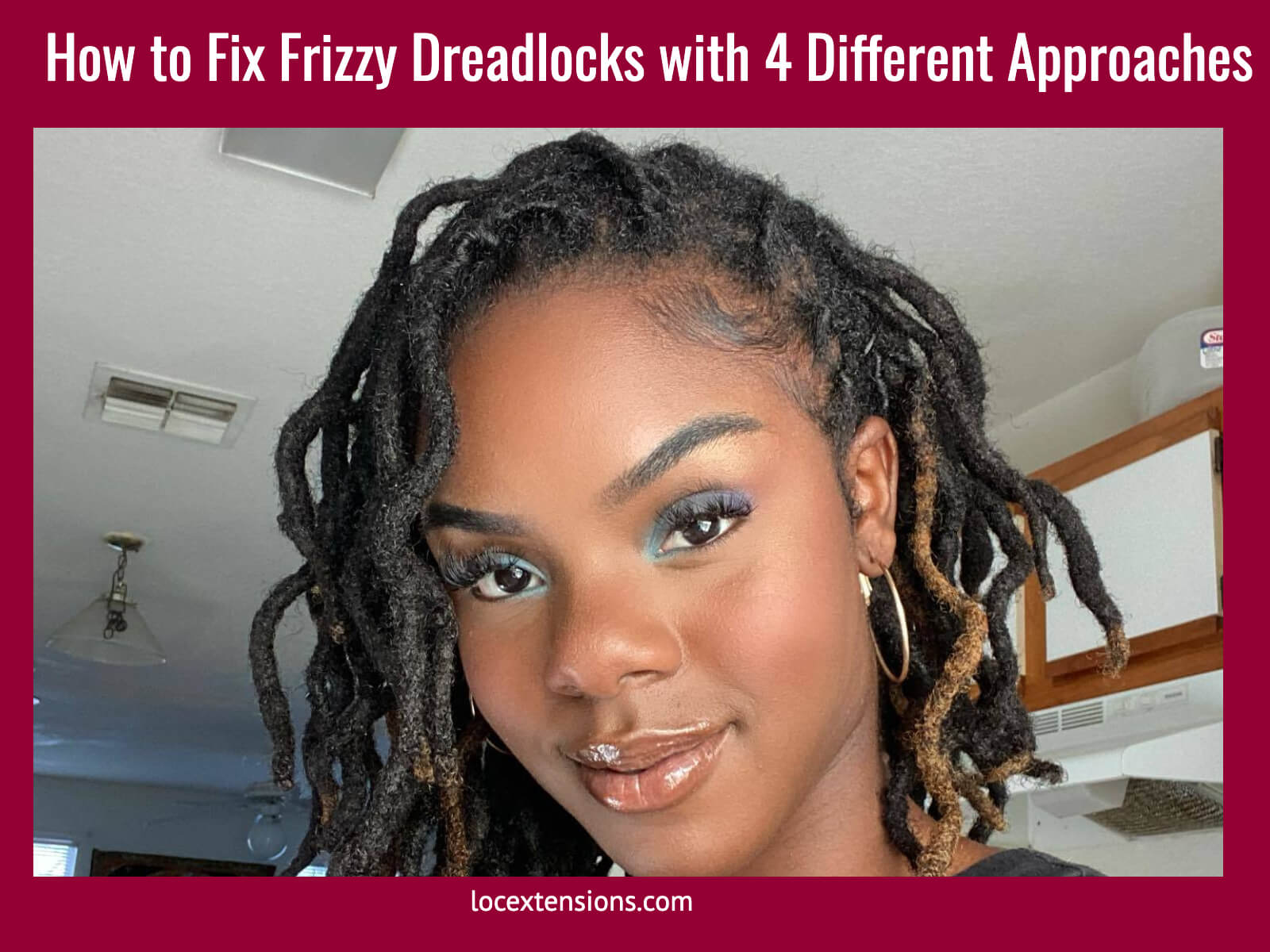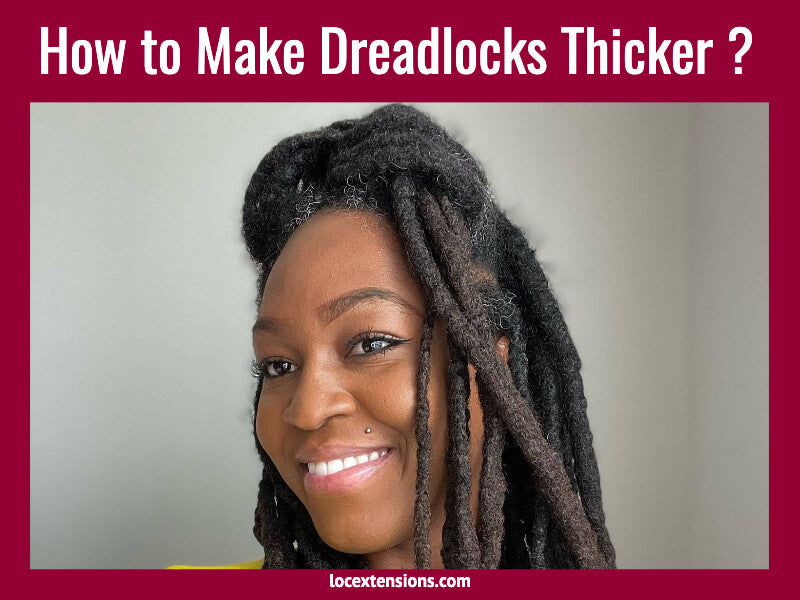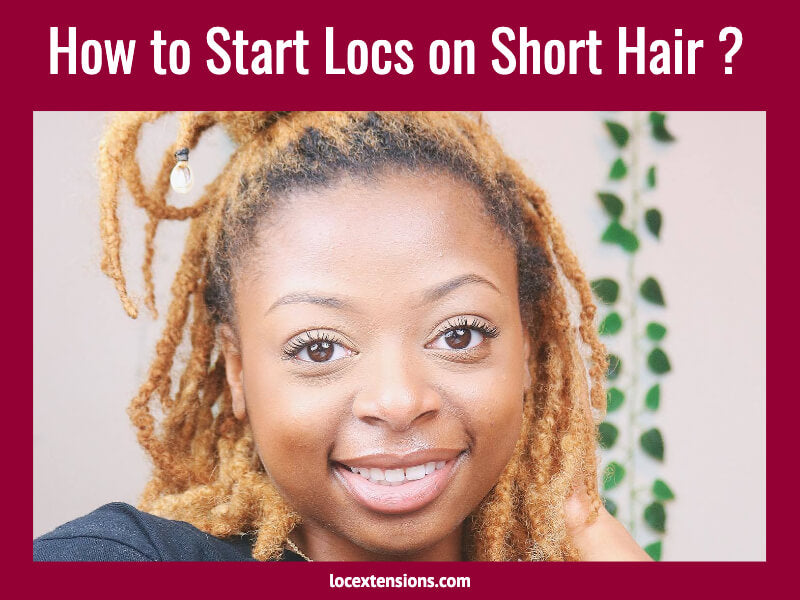
One of the worsts stereotypes about dreadlocks is the frizz. Frizz is an inevitable part of the locs journey that marks the significant hair growth. A frizz is needed to form the locs as the hair grows on the scalp. Many hair stylists try their best to cut off the frizz, which prolongs the locs journey. Furthermore, it leads to the thinning of dreads. So, the best way is to use some techniques to reduce the frizz without damaging the locs.
Are you looking for approaches to help you reduce frizzy locs? If yes, then you are on the right page. This blog will share how to deal with frizzy starter locs. How to style frizzy locs? What are the approaches to controlling frizz in dreadlocks? Continue reading to learn more about frizzy locs.
Why are Dreadlocks Frizzy?
Dreadlocks is a lifelong commitment that comes with several challenges. One of the challenges across the locs journey is frizzy hair. During the locs journey, you can only reduce the frizz to some extent, but you cannot eliminate this. It depends on several ways that cause the frizz such as the hair texture, locs thickness, hair growth and genes.
The hair texture is another component that contributes stop the hair frizz. Thin hairs are prone to develop frizz as compared to thick hair. You may have noticed that people with thin hair need more treatments to settle down their baby hair than people with coarse hair.
If you are looking for the major causes of the frizzy locs, you must know that you can only find the answers once you dig deep into its history. Dreadlocks form when the hair follicles cling and fuse. They make a spiritual structure of the hair follicles that fuse from the tip to the scalp.
Stray hair follicles grow outside the dreadlocks, and the strand resembles a rope that is frizz.
When the dreadlocks start growing, new hair growth appears, which we call frizz. It is confirmed that frizz cannot go away, but we can manage it with some smart tricks. So, let's dig into them.
4 Best Approaches to Avoid Frizz
Frizzy locs are a common phenomenon that can be controlled with the help of some smart approaches. These approaches or techniques help control new hair growth in different ways. For instance, the frizzy dreads after washing can be settled by using an organic hair setting product such as organic hair wax or hair cream. Likewise, here are some more techniques for controlling the frizz such as:
1: Palm rolling frizzy locs
One of the most amazing techniques to handle frizzy locs is palm rolling. It is one of the locs installation techniques. In some hair locs, this technique is used to start the locs at home. Mostly, this technique is applied to short hair. No need to set an appointment with a hair professional, as you can easily palm roll your locs at home.
Palm rolling is a great technique to keep the locs in good shape and condition. If you have an issue with dreadlocks frizzing after a hair wash or unraveling the locs after a few days, palm roll the dreads. To learn this technique, you can look at some YouTube videos. Although the technique is easy, it requires a lot of practice and time.
It is a simple, effective, and easy technique to handle the frizz if you want to rock your locs on any event. Not only it minimizes the frizz, but it also straightens the locs. Simply hair dries your locs after a wash and start palm rolling the locs that look terrible.
2: Use a crochet hook
A crochet hook is an amazing tool used by hair professionals and locticians to install the locs. The tool is just like the crochet needle used for embroidery. A crochet hook can be very helpful in settling frizzy dreads. During the retwisting sessions, the locticians use the same tool for retwisting the unraveling locs. So, this tool is best to perform on the frizzy locs. Then, add the new hair growth to the locs and make them appear neat and clean.
Apart from the crochet hook, a needle with thread can also do well with the frizzy locs. In this method, the hair strands are knitted with the help of thread into the locs. Once the knitting is complete, the thread is extracted from all the locs and your new non-frizzy locs are ready.
3: Interlocking
Another approach to controlling the frizzy locs is using the interlocking technique. In this method, the dreadlocks are knotted from the scalp to the tips of the locs. It creates layered and non-frizzy rope-textured aesthetic locs which appear neat and settled. However, this technique creates tension in the dreads, and the hair feels tight. If the hair locs are tightened much, it can result in some side effects such as baldness or hair thinning. So, be careful when you choose this technique for preventing frizz.
4: Be patient
Last but not the least, the only option to control or prevent frizz in the dreadlocks is to be patient. Know the fact that the locs journey comes with several phases. In the first few months, the starter locs look frizzy. But with the passage of some weeks, the frizz goes away as the locs start growing and enter the teen phase. Likewise, the frizz comes and goes away in different phases.
So, be patient and let the time pass. There is no better solution than waiting for the right time when there is no frizz in your locs, and you are free to style them in any way.
Tips to Style Locs with Frizz
As we know that it is a thing that we can't control, we must look into how we can style locs with frizz. So here are some tips that you must follow to minimize the frizz.
1: Sleeping cap
Add a sleeping cap to your locs regime, as it keeps the locs in good shape. Before bed, start putting on a sleeping cap, head scarf, bonnet, or tube cap. If you sleep with a hair cover, you will note that the frizz is under control. The dreadlocks are wedged between the weight of the head and the pillow, which messes up the hair. So, if you intend to style your hair in the morning, remember to cover them.
2: Avoid hair products
Do not put on any hair product on the locs. If you want to use hair products for styling, the locs, make sure you only use organic, vegan, and natural products that contain no harsh ingredients. Avoid using thick texture products as they can accumulate and result in the build-up. Further, these products can also cause unnecessary frizz. So, be mindful of your choices.
3: No blow dryer
Using the blow dryer or air dryer for drying the locs on a damp day can be the reason for frizzy locs. Avoid using heating instruments as they draw out the moisture and leave thin and brittle hair strands. Always wash the locs when you have enough time to dry the locs in the sun or in the air. Avoid blow-drying locs to prevent frizz and damage to the locs.
Final words:
This is evident that frizz is not a voluntary component of hair maintenance, but it can be reduced by following the right practices. When starting the locs journey, know that this is one thing you cannot avoid at any cost. So, try to maintain the locs with the right approaches and avoid things that are not suitable for your hair.
FAQs
Why are my dreads frizzing?
One of the reasons that dread frizz is the new hair growth. The stary hair follicles start outgrowing the locs and appear as textured rope-like structures, which is frizz.
How do I stop my dreads from frizzing?
To stop the frizz, you need to be patient, as there is no such way. However, you can reduce it by a few approaches, such as palm rolling, interlocking, and a crochet hook.
How to smooth out dreadlocks?
To smooth out the frizz, give your locs a cold-water rinse after washing. Then, use a hair conditioner and get a nourishment treatment.




Catherine Jones
January 17, 2025
Thank you for sharing. I’ll try these suggestions. I’ve noticed my locs get frizzy, when I retwist them, myself. When I get a professional retwist, I don’t have that problem.